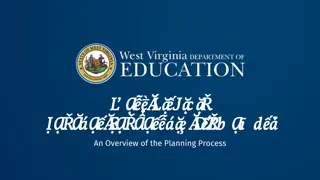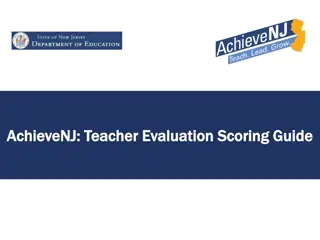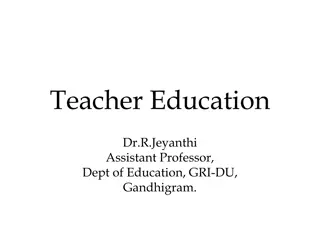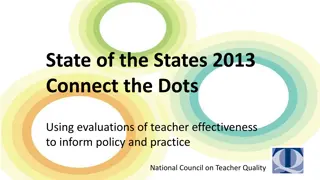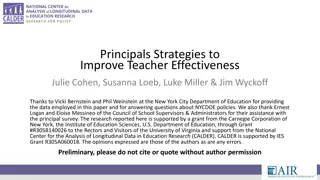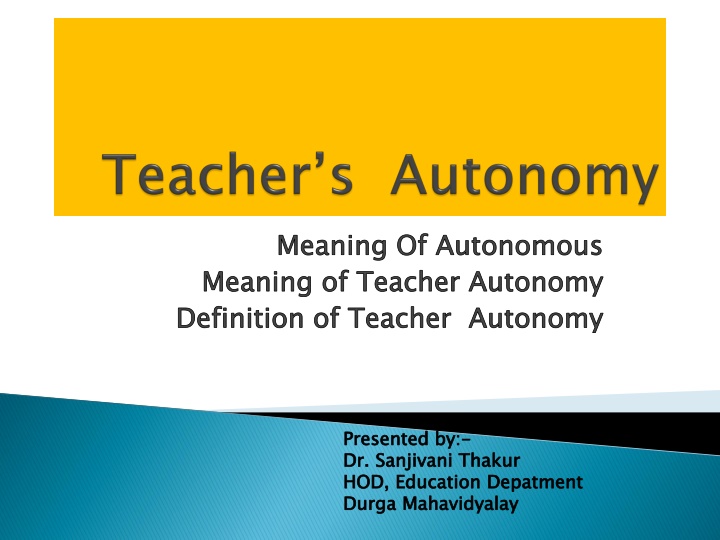
Empowering Teachers Through Autonomy in Education Sector
Explore the concept of teacher autonomy in education presented by Dr. Sanjivani Thakur, focusing on self-directed action, decision-making freedom, accountability, and empowerment for the effectiveness of the education system. Discover how teacher autonomy influences teaching practices, curriculum development, financial systems, and professional growth, ultimately enhancing the quality of education through collaboration, motivation, and ethical considerations.
Download Presentation

Please find below an Image/Link to download the presentation.
The content on the website is provided AS IS for your information and personal use only. It may not be sold, licensed, or shared on other websites without obtaining consent from the author. If you encounter any issues during the download, it is possible that the publisher has removed the file from their server.
You are allowed to download the files provided on this website for personal or commercial use, subject to the condition that they are used lawfully. All files are the property of their respective owners.
The content on the website is provided AS IS for your information and personal use only. It may not be sold, licensed, or shared on other websites without obtaining consent from the author.
E N D
Presentation Transcript
Meaning Of Autonomous Meaning of Teacher Autonomy Definition of Teacher Autonomy Presented by:- Dr. Sanjivani Thakur HOD, Education Depatment Durga Mahavidyalay
1. As self directed action 2.Freedom of decision making 3.Conscience / Rational autonomy 4.Inclusion of accountability 5. Executive freedom 6. For effectiveness of education system 7.Teacher Impowerment
1. Teaching and Assessment 2. Curriculum development 3.Financial system 4.Professional development
Increasing importance of teachers Increasing accountability of teachers Direct relation between student and teacher Personal and professional progress Development of self confidence For collective effort, collaboration and cooperation Enter of suitable person Improvement inn quality of education Empowerment of teachers Helpful in decentralization Psychological basis
Appointment of suitable teacher Political interference Respectful salary Transparency in system Corruption Relation between school and society Proper motivation Behaviour of principal Contemporary education policy Teachers personality Teachers morality Environment of school










